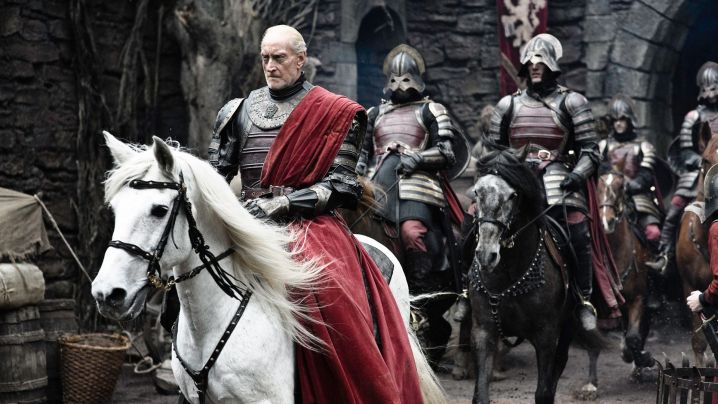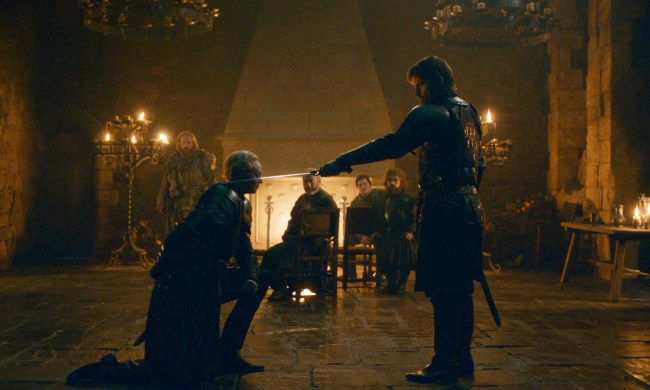HBO’s mega-hit House of the Dragon just wrapped its highly-anticipated second season with a whimper more than a bang. After two long years of waiting, the show came back on June 16 with a shortened season of just eight episodes, promising to deliver a thrilling and compelling story despite the reduced runtime. However, after a strong start, the show lost steam going into its finale, to the point where it’s no overstatement to say it failed on almost every level.
The show’s shortcomings become more glaring when compared to its predecessor, Game of Thrones. Although it lost much of its luster because of its now-infamous eighth season, Game of Thrones was at the peak of its quality during its acclaimed sophomore effort, which produced some of its most memorable scenes, dialogues, and episodes.
Comparing House of the Dragon season 2 and Game of Thrones season 2 is almost an attack on the former, considering just how superior the latter is, outpacing it in every possible metric, from the writing to the character development and even the spectacle. But why exactly is GoT season 2 so much better, and how can House of the Dragon improve moving forward?
What Game of Thrones did right

Following the shocking ending of season 1, Game of Thrones began its second season on full steam. Every single cliffhanger its predecessor set up received an immediate payoff, and the season progressed at a brisk pace, building up to an exciting crescendo. Each major character received something meaningful to do, respecting the outline of its source material yet still finding time to introduce new and exciting plotlines.
More importantly, it actually advanced the story, featuring major developments on every front, including Renly Baratheon’s (Gethin Anthony) death and the subsequent Lannister-Tyrell alliance, Catelyn Stark (Michelle Fairley) releasing Jaime Lannister (Nikolaj Coster-Waldau) and weakening Robb’s (Richard Madden) hold on the North, Jon Snow (Kit Harington) becoming involved with the wildlings, and Theon Greyjoy’s (Alfie Allen) betrayal of Robb and his seize of Winterfell.

The season also introduced multiple major players to the story, including Stannis Baratheon (Stephen Dillane), the red priestess Melisandre (Carice van Houten), Ser Davos Seaworth (Liam Cunningham), Brienne of Tarth (Gwendoline Christie), Margaery Tyrell (Natalie Dormer), Ygritte (Rose Leslie), Gilly (Hannah Murray), and Talisa (Oona Chaplin). All of these characters became crucial in future seasons, with their stories receiving enough attention throughout season 2 to cement their place among the show’s already considerably large ensemble.
Across 10 episodes, Thrones season 2 confidently moves the story forward, rearranging its pieces to where they needed to be for the finale. The show always cleverly used episode 9, rather than 10, to present its biggest set piece; in season 2’s case, it’s the now-iconic Battle of the Blackwater, where Tyrion Lannister (Peter Dinklage) handled the defense of King’s Landing against Stannis’ forces while an increasingly jaded Cersei Lannister (Lena Headey) hid on Maegor’s Holdfast with the other ladies of the court, including Sansa Stark (Sophie Turner).
Blackwater is often considered among the best Game of Thrones episodes, and for a good reason: It was exciting and technically impressive, representing a turning point in the story and affecting multiple major characters. The action in episode 9 allowed for a calmer and more focused 10th episode, which ended the season on a satisfying note that promised a new yet equally exciting third season.
What House of the Dragon did wrong
Contrast that to season 2 of House of the Dragon. The main issue here is the lack of any progress in the story; compare every story from the beginning of the season to the end, and you’ll find little to no development. Rhaenyra (Emma D’Arcy) is still at Dragonstone without the Iron Throne and cannot fight without risking her death. After eight episodes of him tripping on shrooms and making funny faces, Daemon (Matt Smith) is still loyal to Rhaenyra, making her the same promise he made in the season 1 finale. And the Greens still have the Iron Throne, Rhaenyra still has more dragons, and everyone is still preparing for a war that’s always talked about but never actually shown.

The season’s centerpiece, the Battle of Rook’s Rest, where Rhaenys Targaryen (Eve Best) dies, came in episode 4, and while a fine showcase of dragon-on-dragon action, it lacked the same emotional impact as Ned Stark’s execution or the notorious Red Wedding.
Season 2 of House of the Dragon is the epitome of “telling, not showing:” It continuously says that war will be terrible and goes on and on about how many lives will be lost and how it’s all needless without ever actually showing any of the pain and destruction these two spoiled and wholly unprepared would-be monarchs are causing. It’s all talk, and not even interesting talk; the once rich and revealing dialogues from early Game of Thrones have been replaced with dumbed-down explanations about how, in case you didn’t know, war is bad.
The lesson that House of the Dragon has forgotten

Like the late seasons of Game of Thrones, House of the Dragon seems to think fans want spectacle rather than narrative, and excess rather than nuance, which couldn’t be further from the truth. Thrones became famous not for its action set pieces but for its riveting political drama. All these elements are largely missing from House of the Dragon — the closest thing we got was Otto Hightower’s (Rhys Ifans) monologue in episode 2 and perhaps the Green Council’s power struggle in episode 5. Other than that, the season was mostly spent talking about dragons, bastards, lack of dragons, excess of bastards, and so on.
Don’t get me wrong, I enjoy a good action set piece as much as the next guy — Hugh Hammer (Kieran Bew) claiming Vermithor was an exhilarating sequence that ranks among the best the franchise has ever done — but I care about the story much more. I’m sorry to say House of the Dragon has done very little to develop its characters beyond their basic outline. Blackwater was intense not just because of the use of wildfire and the subsequent fight but because of what the actual battle meant for the story; we were involved with these characters — Tyrion, Cersei, Sansa, Davos, Bronn (Jerome Flynn), the Hound (Rory McCann) — and cared about their fates. It wasn’t about the action; it was about the story, and the action was a bonus.

Compare that to the Battle of Rook’s Rest in House of the Dragons, and you’ll instantly find the flaw; it’s not about the story or even the characters but about the dragons and how cool they look; it’s about Vhagar, not Aemond (Ewan Mitchell). By placing more importance on excess and pageantry, House of the Dragon has forgotten the core values of the story, which is exactly what happened to Game of Thrones‘ finale: It wasn’t about a huge battle against the Night King, it was about the prophecy and the living bonding against the dead. It was about The Prince That Was Promised and the Three-Eyed Raven and ice and fire coming together at last.
We cared about all those things and wanted to see them matter. Sadly, House of the Dragon doesn’t care about the intricacies of the Dance: the melody, the acoustics, the instruments, and the players don’t really matter because it’s all about the steps, the one-two-three that takes you from one side of the stage to the other.
Two shows, one throne

In the battle of the sophomore seasons, there is no contest here: Game of Thrones is the much superior show. Its second season was an actual continuation of the story rather than an eight-episode setup for a war that’s been teased ad nauseam without actually showing it. What’s frustrating is that House of the Dragon could’ve easily improved its standing by including two more episodes. Nine would be the Battle of the Gullet, where Jace (Harry Collett) and his dragon, Vermax, die, allowing for a 10th episode where a grieving and perhaps even more ruthless Rhaenyra takes King’s Landing, thus switching sides with the Greens compared to how they started the season.
Instead, we get an extended montage where people prepare for a war they’ve been preparing for since the first season’s finale. It’s such a cop-out that feels not only unsatisfying but actually cheap. Compare that to GoT‘s season 2 and its ending, which finds Samwell Tarly (John Bradley) lost beyond the wall and coming face to face with the White Walkers and the army of the dead.

It was a massive moment for the show because it was the first time it showed the White Walkers and their powerful army in full. It was a confirmation of everything it had been promising since its first episode, and a beautiful closing shot for a stellar season that cemented the show as one-of-a-kind on television.
House of the Dragon messed up its sophomore season, offering a nothing-burger that could be easily skipped, and nothing would happen. If we once thought this show might restore our tarnished faith in the franchise, we now seemingly have an answer, and it’s a resounding “no.”
House of the Dragon is available to stream on Max.




